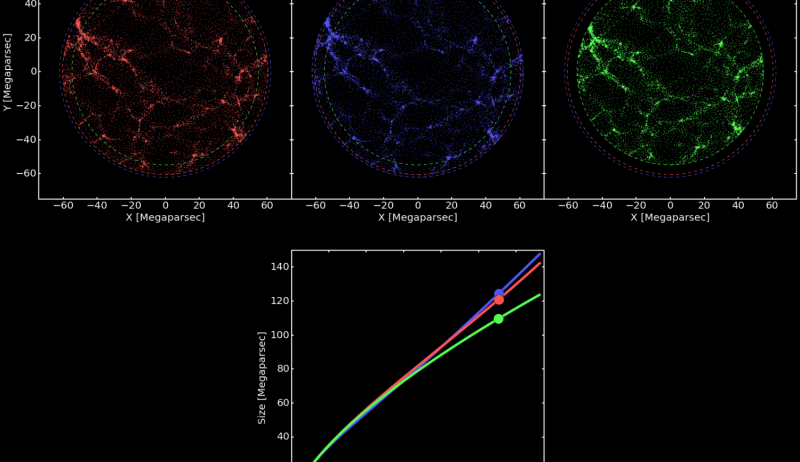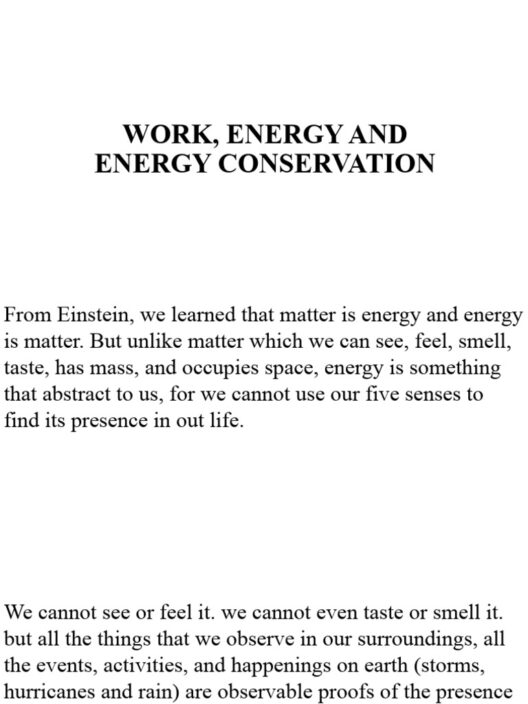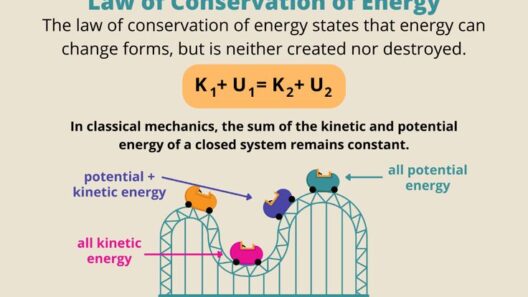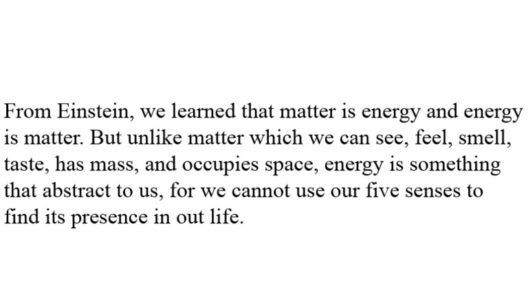The cosmos is a vast expanse, with mysteries that have intrigued humanity for millennia. One of the most tantalizing of these enigmas is the expansion of the universe. As scientists delve deeper into this phenomenon, a question arises: Does the expansion of the universe defy the principles of energy conservation? This inquiry not only underscores fundamental concepts in physics but also opens pathways to explore profound implications for our understanding of space and time.
To grasp the complexities of this topic, one must first appreciate the foundational tenet of energy conservation. The law stipulates that within a closed system, energy cannot be created or destroyed; it can only change forms. This principle serves as a cornerstone in both classical mechanics and modern physics. Thus, when discussing the expansion of the universe, particularly in terms of energy dynamics, one encounters an apparent paradox that invites scrutiny.
Since the 1920s, astronomers have observed that galaxies are receding from one another, a phenomenon readily apparent in the redshift of light. Edwin Hubble’s observations laid the groundwork for what would become known as Hubble’s Law: the farther away a galaxy is, the faster it seems to be moving away from us. This discovery not only contradicted the long-held view of a static universe but also ushered in the concept of an expanding universe. But how does this relate to energy conservation?
As the universe expands, the fabric of space itself stretches. This phenomenon leads to an intriguing situation wherein, theoretically, more space emerges as the cosmos expands. One could argue that this implies a creation of energy, therefore challenging the conservation principle. However, upon closer examination, it becomes evident that the expansion does not produce new energy in the conventional sense. Instead, it dilutes the energy density of existing forms of energy, such as radiation and matter.
A crucial aspect of this discussion involves the role of dark energy, an enigmatic force that constitutes about 68% of the universe. Dark energy is believed to drive the accelerated expansion of the cosmos. Some theories suggest that as the universe expands, the energy associated with dark energy remains constant, unlike other forms of energy that diminish as they spread across a larger volume. This has led to a nuanced interpretation of energy conservation in an expanding universe, where conventional definitions may falter.
Furthermore, it is essential to address the implications of cosmic inflation, a rapid expansion that occurred shortly after the Big Bang. During this epoch, the universe underwent an exponential growth spurt, leading to vast distances between elementary components. The energy associated with this inflationary phase has sparked much debate. Was energy conserved during this extraordinary expansion? Or was there a transformation of energy that eludes traditional frameworks? Understanding the mechanisms at play during inflation may shed light on how energy dynamics operate on cosmic scales.
The relationship between the expansion of the universe and energy conservation invites a broader philosophical inquiry. Does our conventional understanding of energy even apply when considering the universe as a whole? In physics, local conservation laws meticulously apply; however, when contemplating the universe’s total energy, definitions become ambiguous. For instance, general relativity fundamentally alters our perception of gravitation and, by extension, energy loss during expansion.
Moreover, gravitational energy plays a critical role in this narrative. As galaxies recede from one another, their gravitational influence diminishes, potentially affecting energy states within the universe. One must consider whether gravitational interactions can contribute to or even offset the energy conservation dilemma, connecting large-scale cosmic dynamics to local physical laws.
Exploring the boundaries of energy conservation in a cosmic context leads us toward speculative ideas about multiverses and varying physical constants. Some theorists posit that our universe is but one of many existing in a vast multiverse, where the laws of physics may differ. If so, the principles governing energy conservation may vary across these dimensions, further complicating our understanding of energy in a solely expanding universe.
The exploration of energy conservation amidst cosmological expansion invites a blend of empirical observation and theoretical formulation. It emboldens scientists to approach the universe with a mindset open to revision, whereby established laws may be reinterpreted in light of new discoveries. From the microcosm of particle physics to the macrocosm of galactic dynamics, maintaining a flexible understanding of energy is crucial as we progress in our explorations.
In conclusion, the quest to reconcile the universe’s expansion with the law of energy conservation is emblematic of human curiosity and the pursuit of knowledge. While current theories provide tantalizing insights, the complexities underlying this relationship implore continual investigative endeavors. As our understanding of dark energy, cosmic inflation, and the fundamental nature of the cosmos evolves, so too must our contemplation of energy conservation in the vast tapestry of the universe. This conundrum not only speaks to the nature of reality but also serves as a poignant reminder of the uncharted territories of scientific exploration that lie ahead.







